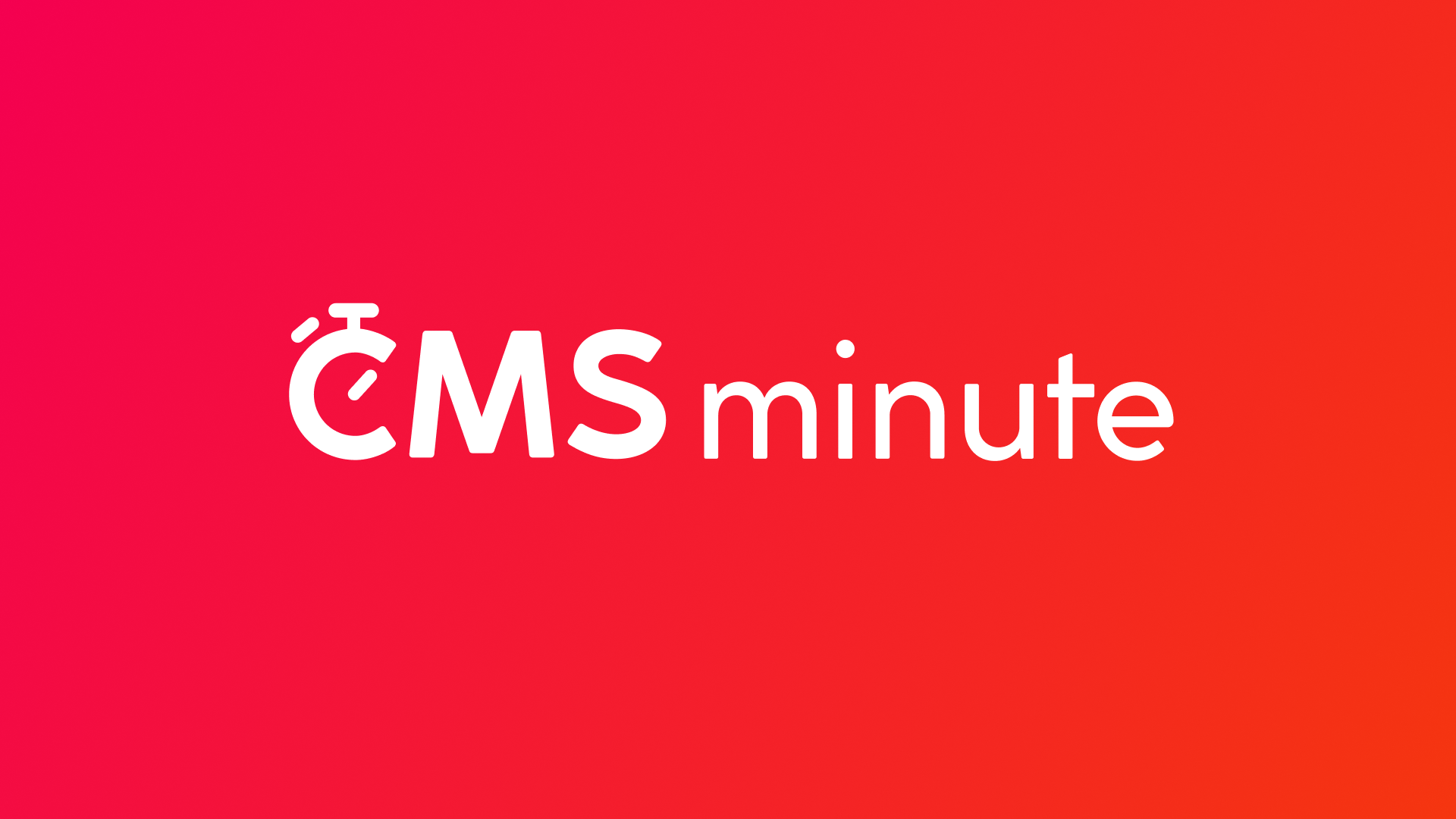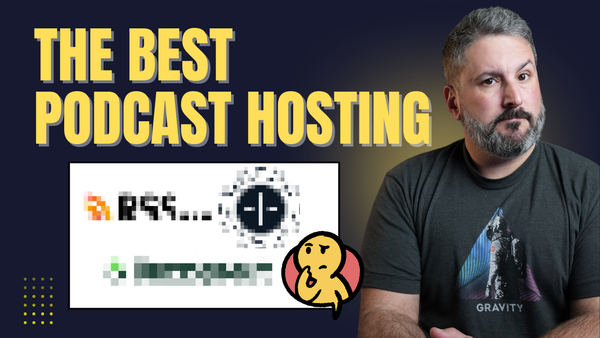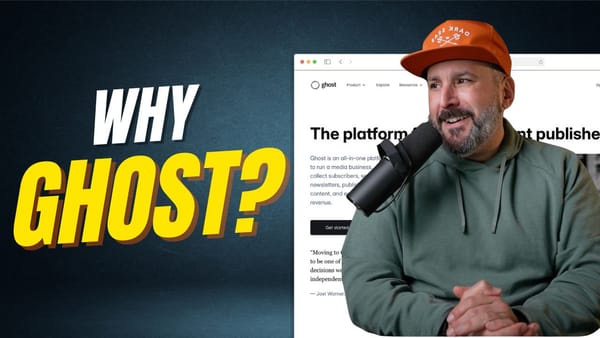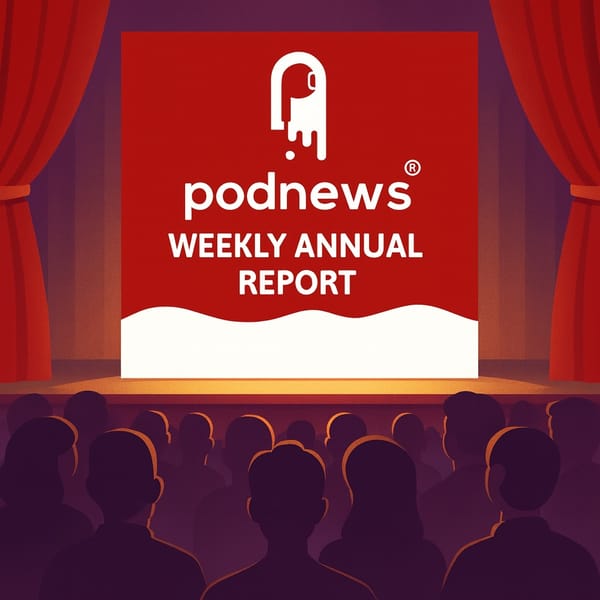Why We're Moving Back to Ghost

After 18 years in the WordPress ecosystem—building client solutions, hosting WordPress podcasts, and working for Gravity Forms—you might wonder why I'd choose Ghost for The Podcast Setup. It's not because WordPress isn't capable. In fact, it's quite the opposite.
WordPress can do anything, and that's exactly the (my!) problem.
The WordPress "Problem" For Me
When you've worked with WordPress for 18 years, you can build whatever you want, and that's my problem...
I spend time adjusting layouts instead of writing content.
I update plugins instead of recording episodes.
WordPress gives me endless options, so I use them. It delays the real goals I need to achieve with the finite time I have to commit to publishing here.
For The Podcast Setup, I need to publish content and grow (launch) the podcast. WordPress makes me want to tweak and configure, Ghost just gets me to publish.
From a business perspective, I need a tool that is hyper focused on the newsletter features, with a simple blogging experience. I login, I see the stats and subscriber count. If I want to turn on payments, it's easy.
On WordPress.com, that lightweight laser focused experience just isn't there. For The WP Minute, I use Kit which is far more robust of an email solution, because the business requires it.
Anyway, here are my reasons for going back to Ghost :)
My 3 Reasons For Using Ghost
I still love WordPress and I think it's a tool that some users can grow into when their business or brand requires it. For now, Ghost will help me with streamlining publishing.
1. Guardrails That Actually Help
Ghost puts up guardrails that WordPress doesn't. There are no granular design tools to lose hours in. No endless plugin ecosystem to explore. No point-and-click editor for the entire website that invites constant tweaking.
These limitations aren't restrictions—they're liberations. Ghost boxes me in and keeps publishing easy, which forces me to focus on what actually matters: getting ideas out of my head and onto the page.
When I use Ghost, I can get in, publish my thoughts, and get out. That's exactly what The Podcast Setup needs right now.

2. The Sponsorship Story (And What It Taught Me)
About a year ago, I pitched John O'Nolan, Ghost's founder, on sponsoring a new podcast called CMS Minute. This was my reaction to the WordPress trademark controversy and uncertainty in the community. I wanted to explore content management options beyond WordPress.
I interviewed several CMS founders and recorded episodes about their platforms. The content was okay, but something wasn't clicking. As months passed, I realized I was creating "inside baseball" content—too technical, too niche, too reactive to current events rather than genuinely helpful.
The content grew stale. I'd spent months spinning my wheels on creative ideas instead of serving an actual audience need. Sound familiar? It's the same productivity trap that WordPress can create, just in content form.
Meanwhile, I kept getting questions about podcast setup, hosting, and strategy. People still need basic guidance on starting and running podcasts. The word "podcast" has never carried more cultural weight or marketing value than it does right now.
That's when it clicked: podcasters need practical solutions, not technical deep-dives. They need platforms that help them build their brand hub without getting in the way.
3. Better Alignment for Real Needs
Ghost and podcasting actually make perfect sense together. Podcasters need a central hub for their brand, a place to publish written content that expands on their episodes, and an easy way to build an email newsletter. Ghost does all of this really well.
More importantly, it does it simply. No learning curve that takes months to navigate. No need to hire a developer for basic functionality. No plugin compatibility issues or security updates to manage.
As someone who consults in the podcast space and works for a podcast hosting company, I see this need constantly. Podcasters want easy. It's hard enough to create great audio content, book guests, and grow an audience. The last thing they need is a website that demands constant attention.
Ghost vs. WordPress: The Right Tool for the Right Job
Let me be clear: WordPress isn't going anywhere in my world.
I'll continue building WordPress solutions for clients who need that level of customization and power. WordPress is fantastic when you need unlimited flexibility, complex functionality, or highly custom designs.
But for a podcast brand that needs to focus on content creation? Ghost provides everything necessary without the distractions.
WordPress gives you infinite possibilities. Ghost gives you focused productivity. Both have their place, but for The Podcast Setup, productivity wins.
Building Your Content "Database"
There's another consideration that's becoming increasingly important: owning your content in an age of AI.
Large language models are trained primarily on text found on websites. If you think of your website as your personal database—your biography, your expertise, your unique perspective—then having an easy way to consistently add to that database becomes valuable.
Ghost and WordPress excel at this.
But as I turn my attention on podcasters that want easy solutions, the publishing workflow of Ghost is effortless, which means you're more likely to actually publish. Every blog post that expands on a podcast episode, every insight you share, every piece of your expertise that you document becomes part of your owned content repository.
In a world where AI is learning from the web, the content you own and control on your own domain matters more than ever.
What's Next for The Podcast Setup
Moving forward, The Podcast Setup will be sponsored by Ghost throughout the rest of the year. (Thanks to John O'Nolan and the Ghost team for supporting practical podcast education—even if John doesn't know I'm doing this yet!)
I'll be creating tutorials on getting started with Ghost for podcast websites, exploring Ghost v6 features that make publishing even simpler, and showing how Ghost can serve as the central hub for your podcast brand.
If you're comparing Ghost to WordPress or another platform you've been thinking about leaving, let me know what specific questions you have. I'm happy to share what I learn as someone who knows both platforms well.
Choosing Simplicity Over Possibility
Sometimes constraints breed creativity and productivity. Sometimes the platform that does less helps you accomplish more.
WordPress will always be there when you need its power. But if you're a podcaster who wants to focus on creating great content rather than managing a complex website, Ghost might be exactly what you need.
The goal isn't to build the most feature-rich website possible. The goal is to grow your podcast and media brand. Choose the platform that helps you do that, not the one that gives you the most ways to procrastinate.
Running a podcast business is tough. Publishing your site and newsletter shouldn’t be. Ghost makes it simple. Get your podcast website & newsletter live on Ghost today.




